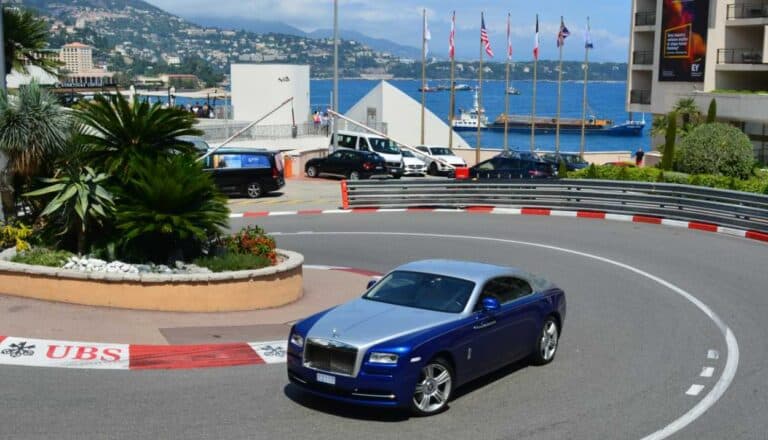Monaco, the glittering gem of the French Riviera, offers more than just a luxurious lifestyle and stunning views: it is a haven for individuals seeking favorable tax conditions.
Although the Principality has long since ceased to be a tax haven, and among others, there is a Monaco corporate tax, this is one of favorite destinations for the wealthy because, yes, it has no income tax at all.
However, contrary to popular belief, avoiding taxes in Monaco isn’t as simple as becoming a resident. The new resident, due to the origin and characteristics of his sources of income, may end up paying taxes.
Here is a detailed guide to understanding Monaco’s income tax system.
NEW REPORT
The report “The definitive guide to living in Monaco” is now available, with detailed information on Monaco’s tax framework, residence and society.
Click here to download it for free.
Personal income tax in Monaco

As said, Monaco does not impose a personal income tax on individual earnings: Monegasque residents are not taxed on personal income, including salaries, dividends, interests, capital gains, and director’s fees, all of which are taxed at 0%.
To not pay taxes in Monaco, one must first:
- obtain administrative status to reside in the country and then;
- be eligible to request a tax residency certificate.
But complications can arise, such as those described in the following section.
Foreign taxes as a Monaco resident
Main article: Monaco taxes for foreigners
New residents in Monaco are not often aware of certain intricacies, like Monaco has limited double taxation agreements, which could affect those with income sources from countries without such treaties.
For instance, moving residency from France to Monaco could increase withholding taxes on US source dividends from 15% to 30% due to the absence of a tax treaty between Monaco and the US.
Monaco has signed many tax information exchange agreements, but not many double taxation agreements for avoiding taxation, being the tax treaties in force the following: Guernsey, France, Luxembourg, Mali, Mauritius, Qatar, Saint Kitts and Nevis, Seychelles…
Corporate tax
Also, many people are surprised to learn that Monaco does indeed levy a corporate tax, known locally as the “Impôt sur les Bénéfices”. This tax generally applies to businesses generating at least 25% of their revenue outside the Principality and can reach a rate of 25%.
Because of this, entrepreneurs who plan to operate international ventures from Monaco need to consider potential exposure to corporate tax, unlike many who still assume the country is entirely tax-free. As a result, it’s no surprise that retirees compose a significant portion of the new residents we are helping to relocate to Monaco.
In any case, this corporate tax has high exemptions during the first years of activity, it is easily reduced through tax deductions, and it is alleviated by the absence of other business-related taxes such as income tax (for employee and director salaries), dividend tax (for when profits are distributed) or capital gains (for a hypothetical sale of the company).
However, Monaco offers several advantageous tax policies, enabling individuals or High-Net-Worth Individuals (HNWIs) to significantly reduce their taxation. These advantages include the following:
- absence of Controlled Foreign Company (CFC) rules, which means that income from offshore entities may be exempt from taxes
- no wealth tax
- no effective management rules for foreign companies
- opportunities for trust and foundation planning as well as family offices
How to (not) pay taxes in Monaco?
To be liable not to be considered a tax resident in Monaco, it is first necessary to get an administrative residency in Monaco.
Applying for residency in Monaco involves proving a sufficient level of wealth, securing a place to live, and demonstrating a clean criminal record. We outline the step-by-step process to achieve residency, from application to approval in our article “How to become resident in Monaco“.
At this point, it is crucial to get a Monaco Certificate of Domicile for Tax Purposes.
To obtain the aforementioned certificate of tax residence in Monaco a person has to:
- Prove that he/she holds a valid administrative residence permit or “carte de séjour”;
- Declare on his or her honor that he or she meets the tax residence criteria, which means have his or her “foyer” in Monaco by spending more than 183 days in the country or having its center of economic interest in Monaco;
- Prove that he/she occupies a dwelling in Monaco, i.e. prove his/her residence in Monaco during the last year (whether owned, rented, or cohabiting with someone) through utility bills, rental agreements, and other proofs admitted by the Monegasque Law;
- Provide any other document that may be requested by the Administration if the abovementioned documents are not enough to show a solid residency in the country.
In short, for those aspiring to become residents of Monaco and optimize their taxes while enjoying a luxurious lifestyle, getting an administrative residency and becoming a tax resident is the key.
Taxation for French nationals in Monaco
A special consideration applies if you are a French national who resides in Monaco. While non-French Monaco residents typically enjoy zero income tax, French citizens are subject to different rules under the terms of a bilateral agreement between France and Monaco.
According to this treaty, French nationals living in Monaco are generally required to pay taxes to France as if they were still residing there, unless they can prove uninterrupted residency in Monaco dating back to before a specific cut-off date (commonly tied to legislation from the early 1960s).
This means that if you are French and you move to Monaco today, you will often be taxed by the French authorities at standard French rates on your worldwide income. However, there are some exceptions or nuances. For example, if you are able to demonstrate historical ties and a lengthy residence in Monaco (well before the relevant treaty date), you may avoid French taxation.
In practical terms, French nationals should be cautious when planning their relocation to Monaco, because failing to comply with French tax obligations can lead to significant penalties and back-taxes.
Any questions?
At MonacoAdvisers we have been helping entrepreneurs, high-net-worth individuals, sportsmen (and women), and people from the world of cryptocurrencies to transfer their tax residency to Monaco for years.
Our presence and contacts in Monaco make us an ideal travel partner for this arduous task. So if you have questions about Monaco and would like us to help you with the process, please write to us at [email protected] or through the contact section.
If you are interested in changing your tax residence and are not quite sure which is your ideal destination, we recommend you download for free and read our updated report “The definitive guide to living and paying taxes in Monaco”, available below.
Sources
- https://monservicepublic.gouv.mc/en/themes/tax/information/general-information/tax-in-monaco
- https://monentreprise.gouv.mc/en/themes/accounting-obligations-and-tax/tax/other-taxes-and-duties/corporate-income-tax
- https://en.gouv.mc/Government-Institutions/The-Government/Ministry-of-Finance-and-Economy/Department-of-Tax-Services
- https://en.service-public-particuliers.gouv.mc/Residency/Settling-in-Monaco/How-to-obtain-a-residence-permit/Conditions-for-issuing-residence-permits
- https://en.gouv.mc/Policy-Practice/Monaco-Worldwide/International-Tax-Compliance/Tax-agreements-signed-by-Monaco



 All communications are encrypted and will be treated with absolute confidentiality. Your data will never be shared with third parties.
All communications are encrypted and will be treated with absolute confidentiality. Your data will never be shared with third parties. 




